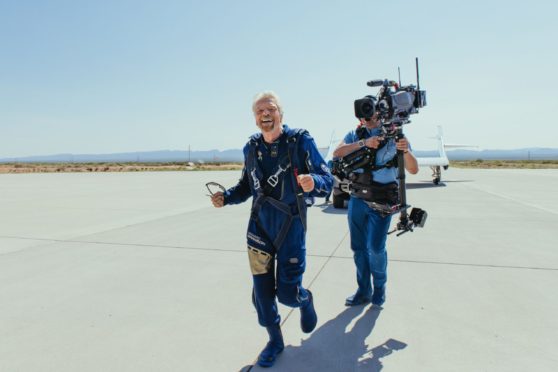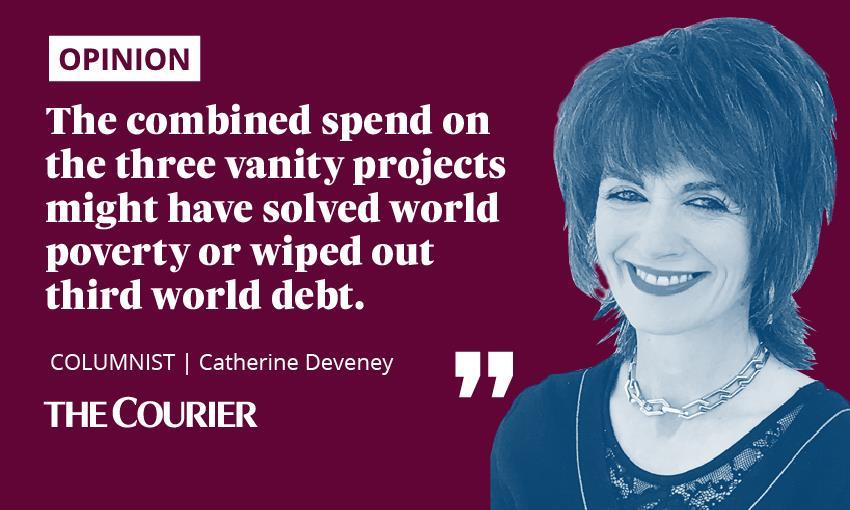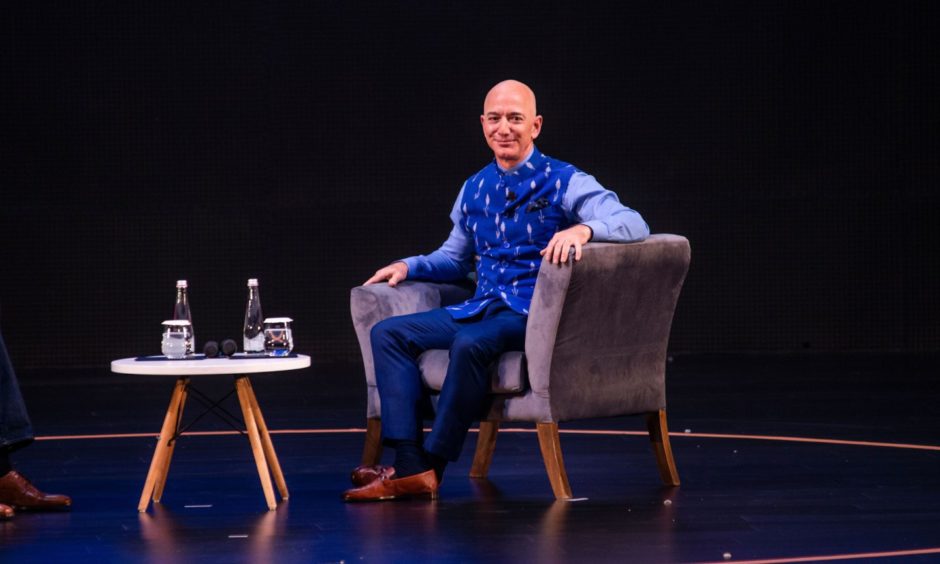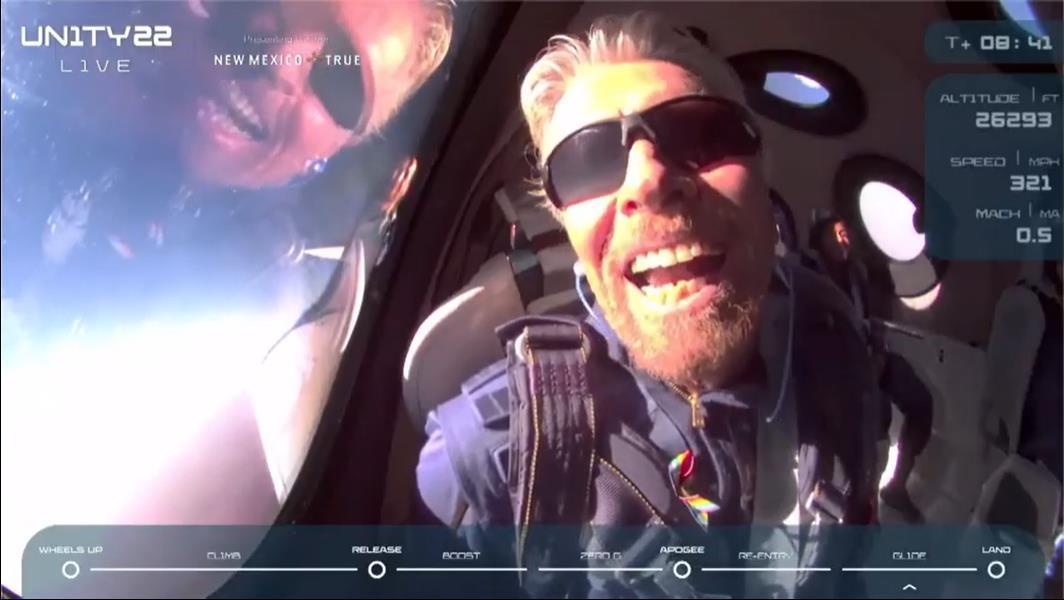Well done Richard Branson for finally creating enough hot air this week to fuel a rocket.
God knows he’s exhaled enough of it over the years, talking about space travel for “the masses” before scuttling back to his tax-free haven on the British Virgin Islands.
Of course, the gritted teeth congratulations of his space entrepreneur chums Jeff Bezos and Elon Musk were entertaining – ha, ha, losers! – but here’s my question: how much does testosterone weigh?
There are certain phenomena that just blow unscientific minds like mine: television, electricity, the way dropped toast defies the laws of probability to always land on the jammy side.
But none is more baffling than the combined weight of Branson, Bezos and Musk’s testosterone being simply wiped out by gravity. Incredible.
Of particular comedic value has been the hijacking of altruism.
The combined spend on the three vanity projects might have solved world poverty or wiped out third world debt if they had all just settled for a mortgage-equivalent TESLA.
But what good is that to a billionaire’s ego?
While Branson was spending dream dosh, he was pleading pandemic poverty, asking British tax payers to give his business a £500 million bail out
Still, it brought a tear to my glass eye when Richard Branson informed us that “we’re here to make space more accessible to us all”.
He wants the $250,000 ticket price to eventually drop to $40,000 so if we all just sell our houses, hire a tent for the next 30 years and sell our kids to the international slave trade, those tickets could be ours.
Alternatively, we could buy an Omaze ticket because Branson is donating space trips to the charity fundraisers.
Space travel for the chosen few (or two)
Don’t be too impressed. Not paying tax for 14 years means he can afford it.
This is his contribution to putting Mars on all our road maps.
“It’s just a way,” Branson said, “of trying to get lots of people who couldn’t otherwise afford to go to space, to go to space.” Awww.
Just to put an actual figure on “lots”, he means two.
Meanwhile Bezos introduced a nice philosophical touch, saying that space travel “changes your relationship with the planet, with humanity.”
Well! If he stopped allowing his giant, resource-guzzling company Amazon to destroy millions of products each week that could be given to people who need them, his relationship with the planet, and with humanity, would transform.
Simple advice, Jeff, but effective. That’s why they pay me the big bucks.
Though not as big as you, obviously.
There is always a tension between life’s necessities, and endeavours that enhance existence or advance knowledge.
Bread or cake? We need a bit of both. To infinity and beyond and all that.
Except, Richard Branson’s millions got him 55 miles from earth, to the edge of outer space, to experience a few minutes of weightlessness.
The same could be achieved in an aircraft which is used to train pilots and is jovially nicknamed “the vomit Comet”.
Richard Branson, and the rest of the rich, get richer
It’s not quite the same as reaching for the stars, obviously, but then, mankind has already conquered the moon.
But what really chokes me is that, while Richard Branson was spending dream dosh, he was pleading pandemic poverty, asking British tax payers with a fraction of his cash – and none of his means – to give his business a £500 million bail out.
Oh, and Australian taxpayers to give £700 million.
This, by the way, in a period when the world’s richest got even richer, and Britain’s wealth gap ballooned, with the wealthiest 10% gaining, on average, an additional £50,000 each. Truly another planet.
It’s an audacious strategy: get the government to pay your bills and then spend your cash on travel.
I will be sending my house, car and utility bills – backdated obviously – to the government and will let you know how that goes.
If it works, I’ll be packed and off to Hawaii in a shake of my grass skirt.
A firm of absolute chancers
It was bad enough when the space race was about nations, America and Russia, vying to be first to the moon as an illustration of their superior economic and intellectual systems.
Now it’s just a sign of billionaire bravado, a great, big, boy-fest.
Richard Branson brought his flight forward nine days – of course he did! – after Bezos, who flies next with a passenger who has reportedly paid $28 million for the pleasure of accompanying him, foolishly announced his flight date.
those who attack space
maybe don’t realize that
space represents hope
for so many people— Elon Musk (@elonmusk) July 13, 2021
Not that it was a race, Branson insisted. Or if it was – make up your mind, Richard – it was a race of spaceships that could get more people into space.
Branson, Bezos & Musk: sounds like a firm of absolute chancers to me.



